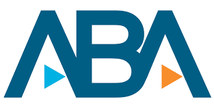|
by Amanda Grau
TIKD, an application that enables users to be paired with an attorney based on an uploaded traffic ticket they wish to contest, has been embroiled in antitrust and unauthorized practice of law (UPL) litigation since 2017. In January 2019, there was a major win for the app and Christopher Riley, the app’s developer: the referee, appointed by the Florida Supreme Court as the court’s finder of fact for the UPL lawsuit, released a report in favor of TIKD. The report now goes to the Florida Supreme Court for adoption or rejection. The referee, Judge Pooler, stated that although it is undisputed that TIKD is not authorized to practice law in Florida, TIKD is not a law firm nor a lawyer referral service and its operations did not involve UPL. “No reasonable person could conclude, based on the evidence submitted to the Referee, that TIKD or Riley hold themselves out as providers of legal services,” said Judge Pooler. Despite the positive ruling, TIKD has decided to suspend consumer traffic ticket services, perhaps in an effort to avoid future litigation. This is a blow to consumers looking for affordable legal support when dealing with unjust traffic tickets.
14 Comments
by Madison Swanson
State bar associations continue to threaten the operations of online legal document providers under the guise of consumer protection through restrictive and unnecessary rules. The states of Washington and Tennessee have both considered resolutions that would impose expensive obligations and strict regulations on OLPs operating in their states. Tennessee House Bill 1411, proposed in February 2019, states that online document providers are not considered to be practicing law so long as they follow the regulations laid out in the resolution. The regulations, however, were incredibly strict, expensive, and unnecessary. They would greatly raise the price the consumer pays for the same products and services. Thanks to pressure from Responsive Law and our allies, HB 1411 was withdrawn from consideration. Amendments to General Rule 24 proposed by the Washington State Practice of Law Board (POLB), however, still stands and is open for comment until the end of August. The General Rules of the Washington State Bar dictate the general conduct of courts and lawyers, and Rule 24 defines the practice of law. This amendment, unlike HB 1411, doesauthorize the activities of online legal document preparers as the practice of law so long as they follow the regulations laid out in the potential new rule. The regulations the Washington POLB proposes are again unnecessary and would threaten the growth, profitability, and usefulness to the consumer of these document providers. Read HB 1411 here and the GR 24 amendment here. by Madison Swanson  Responsive Law recently participated in a working group to amend American Bar Association Proposed Resolution 10A, a set of best practices for online legal document providers (OLPs). In July of last year, the New York State Bar Association (NYSBA) proposed a set of crippling regulations for OLPs that was subsequently withdrawn after Responsive Law assembled a coalition of opponents to block the proposal. The NYSBA amended the resolution and proposed it again this past January, but Responsive Law still found many issues with the best practices the revised 10A promulgated. Therefore, we again mobilized our allies to oppose Resolution 10A. In response to our opposition and the comments we submitted, the ABA convened industry and consumer groups and bar representatives to address outstanding issues with the Resolution. At this meeting, we made it clear what our main concern with this resolution was: many of the proposals created expensive and unnecessary obligations for OLPs that would raise the cost of the services that OLPs offer. The NYSBA and the ABA claimed that the best practices in Resolution 10A would protect consumers. In reality, they would negate the major advantage of OLPs, which is to increase access to understandable and affordable legal tools. Overall, Responsive Law is pleased with the changes that were made to Resolution 10A during the working group process. Many of the superfluous regulations that would have increased the cost of using OLPs were stricken and many of the remaining best practices create advantages for the consumer. Our work, however, is not done. Not only are there several outstanding issues, but Responsive Law takes issue with the premise of the resolution. We do not believe that the ABA, a trade organization, should be promulgating best practices for its competitors. Proposed Resolution 10A, with the changes made during the working group process, will be presented again to the ABA House of Delegates in August 2019. |
Blog History
Archives
February 2024
Categories
All
|
-
Advocacy
- Requiring Public Oversight of Lawyer Regulation
- Non-Lawyer Assistance and Unauthorized Practice of Law >
- Alternative Business Structures
- Lawyer Advertising
- Online Legal Services and Multijurisdictional Practice
- ABA Commission on the Future of Legal Services
- ABA Commission on Ethics 20/20
- Protecting Client Rights
- Limited Scope Representation ("Unbundled" Legal Services)
- Simplifying Courts
- Blog
- Issues
- About Us
- Donate
- Top Stories 2023
- Legal Help
- Report Card
- Receive Updates

 RSS Feed
RSS Feed